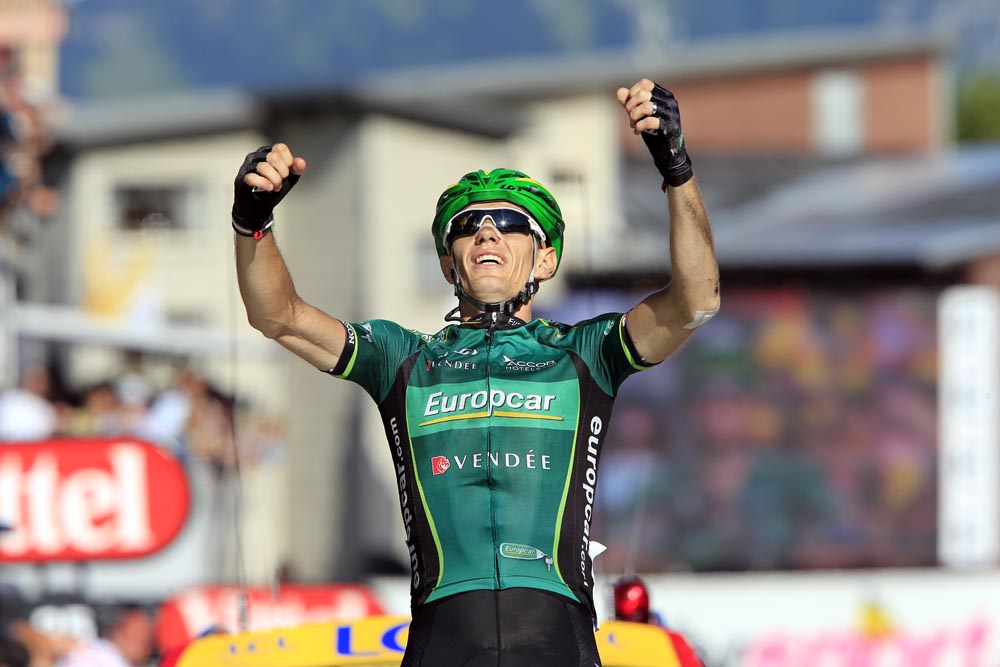Europcar faces questions over Pierre Rolland's cortisol levels

The latest race content, interviews, features, reviews and expert buying guides, direct to your inbox!
You are now subscribed
Your newsletter sign-up was successful
A mini storm broke out the day after the end of the Criterium du Dauphine when French sports daily l'Equipe reported that Europcar rider Pierre Rolland had started the final stage, despite medical advice to the contrary.
Rolland and the rest of the Europcar team were subjected to a blood test early on Sunday morning, where the French climber's cortisol levels were found to be abnormally low. Cortisol is a hormone produced by the adrenal glands and its level in the body rises and falls depending on a number of factors.
When the body is stressed - following racing or training - the expectation is that levels are raised. In Rolland's case, his cortisol level was found to be lower than the normal, expected limit. At this point, following guidelines set down by the MPCC (Movement for Credible Cycling group), Rolland should have not started the stage.
Instead, Europcar's proposed leader for the upcoming Tour de France Rolland took the start of the tough final stage of the Dauphine between Sisteron and Risoul on a cold day (the temperature was only one degree at the summit of the Col de Vars) and then abandoned the stage after 20km officially because of ‘tendinitis' in his Achilles.
The story has all manner of implications. Low levels of cortisol aren't a serious danger in themselves; however, as was the case with the 50 per cent haematocrit limit set during the EPO era, the low level of cortisol sets off alarm bells. Crudely speaking, if a rider is taking cortisone (the synthetic version of cortisol) over a period of time, the body reduces the natural production of cortisol, relying instead on exogenous cortisone. When a rider reduces or stops cortisone injections/ingestion, their adrenal glands take time to re-start natural production of cortisol.
The problems arising from this are many and various. Why was Rolland allowed to start? Who authorised it? Was his abandon really due to Achilles tendinitis (worrying for a variety of reasons) or in an effort to save face? And, in a team which has previously been investigated when allegations of cortisone abuse surfaced in 2011 (the case was dropped for lack of evidence), the circumstances around Rolland's depressed cortisol levels raises old questions and new worries.
The ‘affair' took a turn for the worse when Europcar team manager's explanation for Rolland's situation was denied by MPCC doctor Armand Megret. Europcar boss Bernaudeau explained that Rolland had been given the OK to start stage by Megret. It was an explanation that Megret was quick to distance himself from. Quoted in l'Equipe, Megret said, "It's him (Bernaudeau) who said that, not me, it's completely false and incomprehensible. I'd rather not comment in the heat of the moment."
The latest race content, interviews, features, reviews and expert buying guides, direct to your inbox!
Europcar directeur sportif Andy Flickinger, the team's doctor on the race, Hubert Long, as well as Bernaudeau all have some explaining to do to the MPCC president: ex-pro and experienced directeur sportif Roger Legeay.
Twitter: @KenBobPryde